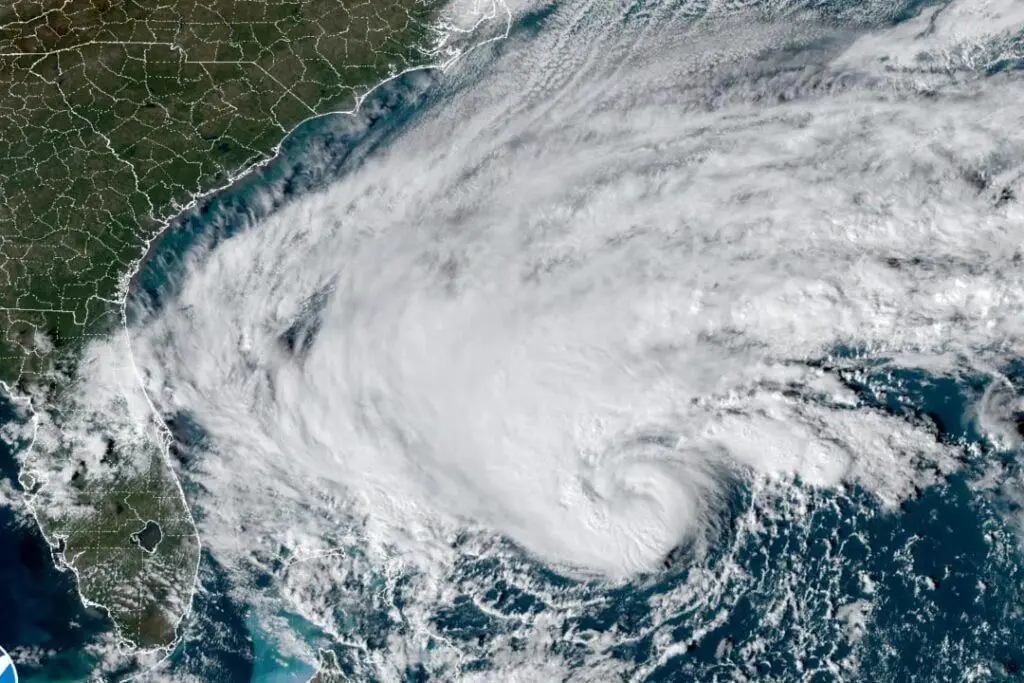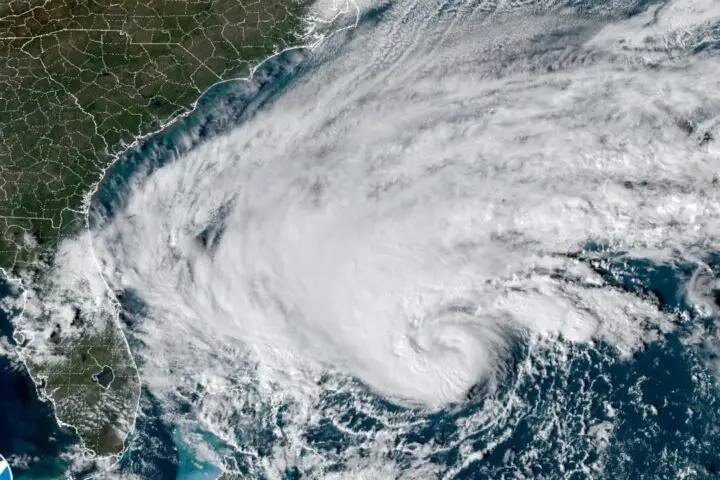Coastal regions are no strangers to tropical storms, which, although not as powerful as hurricanes, can still pose significant risks to communities. Tropical storms can bring about heavy rainfall, strong winds, and storm surges, leading to considerable damage. The National Hurricane Center (NHC) issues a tropical storm watch when there’s potential for tropical storm conditions in a specified region, typically within the next 48 hours.
How Tropical Storms Form
Developing over warm ocean waters, tropical storms arise from the rising moist air that creates an area of low pressure beneath it. This process leads to the surrounding air spiraling inwards, generating powerful winds and heavy rain. Tropical storms are not as strong as hurricanes but can still cause significant damage. A storm is classified as tropical when its wind speeds reach between 39 and 73 mph.
What is a Tropical Storm Watch?
The National Hurricane Center issues a tropical storm watch when conditions are conducive to the formation or arrival of a tropical storm in a specific area. Watches are typically issued 48 hours before the onset of tropical storm-force winds, providing residents with enough time to prepare for potential impacts. While a tropical storm watch does not guarantee that a tropical storm will occur, it indicates the possibility of such conditions within the designated area.
What is a Tropical Storm Warning?
A tropical storm warning is issued when a tropical storm is expected to impact a specified area, typically within 36 hours. Warnings are more urgent than watches, signaling the imminent arrival of a tropical storm. Upon receiving a tropical storm warning, it is vital to finalize preparations and adhere to any guidance from local authorities.

Tropical Storm Safety Tips
Ensuring safety during a tropical storm requires thorough preparation. Here are some vital safety tips to help you get ready for a tropical storm:
- Develop an emergency plan: Establish an emergency plan before a tropical storm watch is issued. This plan should outline evacuation routes, communication methods, and a designated meeting point for family members.
- Keep informed: Stay updated on weather forecasts and alerts by monitoring local news and the National Hurricane Center’s updates using a weather radio or mobile device.
- Reinforce your home: When a tropical storm watch is issued, reinforce your home by boarding up windows, securing outdoor items, and trimming trees that could be dangerous during high winds.
- Assemble an emergency kit: An emergency kit containing essentials like non-perishable food, water, medications, flashlights, batteries, and crucial documents.
- Follow evacuation orders: If local officials issue an evacuation order, comply with their instructions and leave the area promptly. Don’t forget to bring your emergency kit and necessary belongings with you.
- Stay sheltered during the storm: If you aren’t evacuated, find shelter in a secure interior room away from windows and doors. Keep track of the tropical storm’s progress and wait for it to pass before going outside.
In addition to essential safety tips, individuals can take further steps to prepare for a tropical storm:
- Safeguard important documents: Protect crucial documents, such as passports, birth certificates, and insurance policies, by placing them in waterproof containers.
- Compile a home inventory: Make a detailed inventory of your possessions, including photos and receipts, which can help with insurance claims if there’s damage or loss during a tropical storm.
- Plan for power outages: Tropical storms can cause power outages that last for extended periods. Stock up on batteries, portable chargers, and solar-powered devices to keep essential electronics charged. You might also consider investing in a portable generator, but ensure it is operated safely and only in well-ventilated outdoor areas to avoid carbon monoxide poisoning.
- Prepare for pet safety: If you have pets, create a plan to keep them safe during a tropical storm. Include pet supplies such as food, water, medications, and vaccination records in your emergency kit. Look into pet-friendly shelters or lodging options in advance, and make sure your pets have proper identification tags and microchips in case you become separated.
- Understand flood risks: Be aware of your home’s vulnerability to flooding from storm surges or heavy rainfall. Check local flood maps, and consider purchasing flood insurance if your property is at risk.
- Fortify your home: If you reside in an area prone to tropical storms, consider making structural improvements to withstand storm-force winds better. This may include reinforcing your roof, installing storm shutters, and using storm straps to secure your home’s frame.
- Connect with neighbors: Establish a neighborhood network to share information, resources, and support during a tropical storm. Set up a communication plan and consider using social media or neighborhood apps to stay connected and informed.
- Practice your emergency plan: Ensure that you and your family are familiar with your emergency plan and that everyone knows what to do during a tropical storm. Regularly review and update your plan, and practice evacuation routes and shelter-in-place procedures.
Following these additional steps can enhance the safety and well-being of yourself, your family, and your property during a tropical storm. Preparation is key, and staying informed about potential risks and weather conditions during the hurricane season can make a significant difference.


